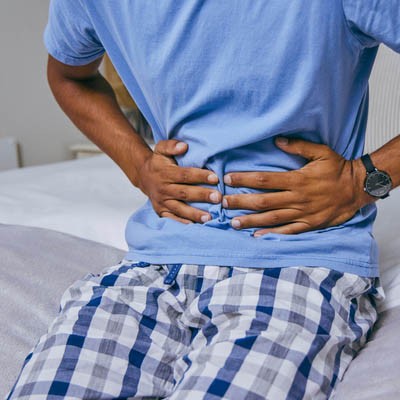Experiencing stomach pain after a bowel movement can be concerning. While sometimes it’s a minor issue, it can also indicate underlying digestive problems. This article explores potential causes of stomach pain post-bowel movement and offers guidance on when to seek medical attention.
Common Causes of Stomach Pain After Bowel Movement
Several factors can contribute to stomach pain following a bowel movement. Here are some of the most common culprits:
Irritable Bowel Syndrome (IBS)
IBS is a chronic functional disorder affecting the large intestine. A hallmark symptom of IBS is abdominal pain that often improves after a bowel movement. However, some individuals experience lingering or worsening pain. Other IBS symptoms include bloating, gas, and changes in bowel habits (diarrhea or constipation).
Inflammatory Bowel Disease (IBD)
Conditions like Crohn’s disease and ulcerative colitis, collectively known as IBD, involve chronic inflammation of the digestive tract. Abdominal pain, often cramping in nature, is a prominent symptom. While pain might decrease after a bowel movement, it can persist and be accompanied by bloody stools, diarrhea, and weight loss.
Gas and Bloating
Trapped gas in the intestines can cause discomfort and pain, even after a bowel movement. Bloating, often associated with gas, can also contribute to stomach pain. Certain foods, lactose intolerance, and swallowing air while eating can exacerbate gas and bloating.
Constipation
Straining during a bowel movement due to constipation can lead to abdominal pain. Hard, dry stools are difficult to pass, putting pressure on the abdominal muscles and potentially causing discomfort even after elimination.
Food Sensitivities and Intolerances
Certain foods can trigger digestive distress, including stomach pain after a bowel movement. Common culprits include lactose (in dairy products), gluten (in wheat), and certain types of carbohydrates (FODMAPs). Identifying and avoiding trigger foods can help alleviate symptoms.
Endometriosis
In women, endometriosis, a condition where uterine tissue grows outside the uterus, can cause pelvic pain that may worsen around bowel movements. The pain can sometimes be mistaken for stomach pain.
Other Potential Causes
Less common causes include:
- Diverticulitis: Inflammation or infection of small pouches in the colon (diverticula).
- Pelvic Floor Dysfunction: Problems with the muscles and nerves controlling bowel function.
- Colon Cancer: Although rare, persistent abdominal pain after bowel movements warrants investigation to rule out serious conditions like colon cancer.
When to See a Doctor
While occasional stomach pain after a bowel movement might not be cause for alarm, consult a doctor if you experience:
- Severe or persistent pain
- Blood in your stool
- Unexplained weight loss
- Fever
- Changes in bowel habits that last more than a few weeks
Managing Stomach Pain After Bowel Movements
Depending on the underlying cause, treatment options vary. They may include dietary changes, stress management techniques, medications for IBS or IBD, and in rare cases, surgery.
Conclusion
Stomach pain after a bowel movement can stem from various factors, ranging from functional disorders like IBS to more serious conditions. Paying attention to accompanying symptoms and seeking medical attention when necessary is crucial for accurate diagnosis and effective management. Don’t hesitate to discuss your concerns with a healthcare professional to find relief and improve your digestive health.

